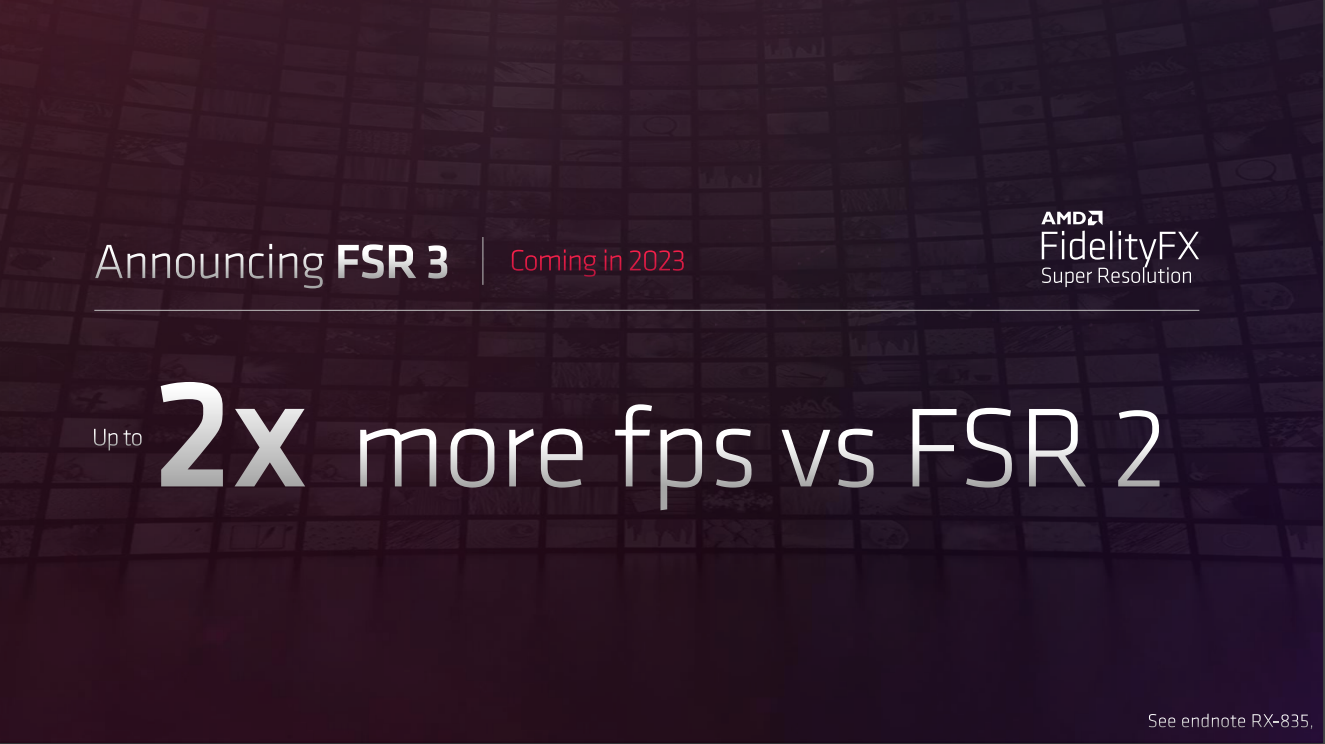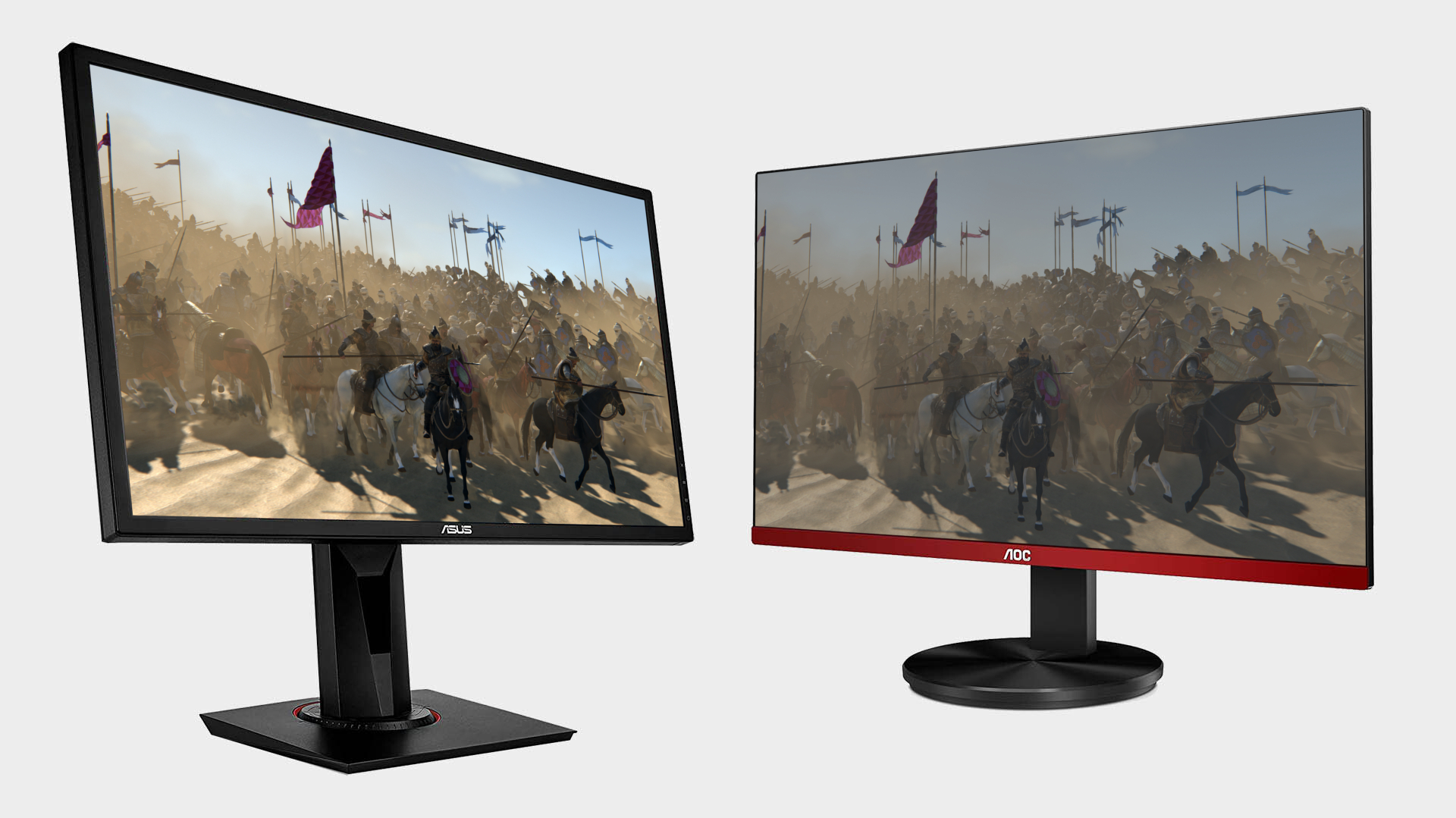AMD teases FidelityFX Super Resolution 3 with up to 2x performance gain versus FSR 2
AMD's new upscaling algorithm is set to arrive sometime in 2023, and it offers frame generation technology.

AMD has confirmed that a new version of its FidelityFX Super Resolution upscaling, FSR 3, will launch in 2023. The new version will incorporate something called Fluid Motion Frames technology and will deliver massive gains in the realms of 2x higher fps.
Not much was said on the specifics regarding FSR 3 during AMD's RX 7900 XTX and RX 7900 XT announcement stream, but we know it will incorporate what AMD's dubbed Fluid Motion Frames technology.

According to Radeon GM Scott Herkelman, this may be in some way similar, at least in purpose if not in how it actually works, to what Nvidia calls DLSS Frame Generation. That technology infers information from motion vectors and rendered frames to generate entirely new frames and dramatically improve FPS in supported games.
"It's frame generation, that's for sure," Herkelman says during a Q&A.
The 2x performance claim was tested using Unreal Engine 5's City Sample application, versus FSR 2 running in quality mode. I would assume it will likely be a bit closer if you were to run FSR 2 in Performance mode.
What we don't know is whether FSR 3 will require certain acceleration on the GPU to deliver these much improved frame rates. When asked about this, AMD coyly suggested more info would come at a later date, presumably next year.
AMD's Frank Azor also noted that "current generations of FSR do not require machine learning."
The biggest gaming news, reviews and hardware deals
Keep up to date with the most important stories and the best deals, as picked by the PC Gamer team.

Best gaming monitor: Pixel-perfect panels for your PC
Best high refresh rate monitor: Screaming quick screens
Best 4K monitor for gaming: When only high-res will do
Best 4K TV for gaming: Big-screen 4K PC gaming
It's absolutely a stretch to take that statement as anything other than simply reaffirmation of FSR's current state in regards to AI acceleration, but the way it was phrased doesn't preclude future versions of FSR using AI, either.
One thing that AMD has incorporated into its next-gen RDNA 3 graphics cards is much improved AI hardware. Up to 2.7x faster AI performance with the top cards, in fact. Hopefully we will see more ways to take advantage of that capability inside our gaming machines with the coming months and years.
There are currently 216 games supporting FSR in some capacity today, and AMD says that the number adopting newer versions of FSR is growing. That's good to hear from a gamer's perspective, as the technology is open to owners of graphics cards from all major GPU manufacturers.

Jacob earned his first byline writing for his own tech blog. From there, he graduated to professionally breaking things as hardware writer at PCGamesN, and would go on to run the team as hardware editor. He joined PC Gamer's top staff as senior hardware editor before becoming managing editor of the hardware team, and you'll now find him reporting on the latest developments in the technology and gaming industries and testing the newest PC components.

